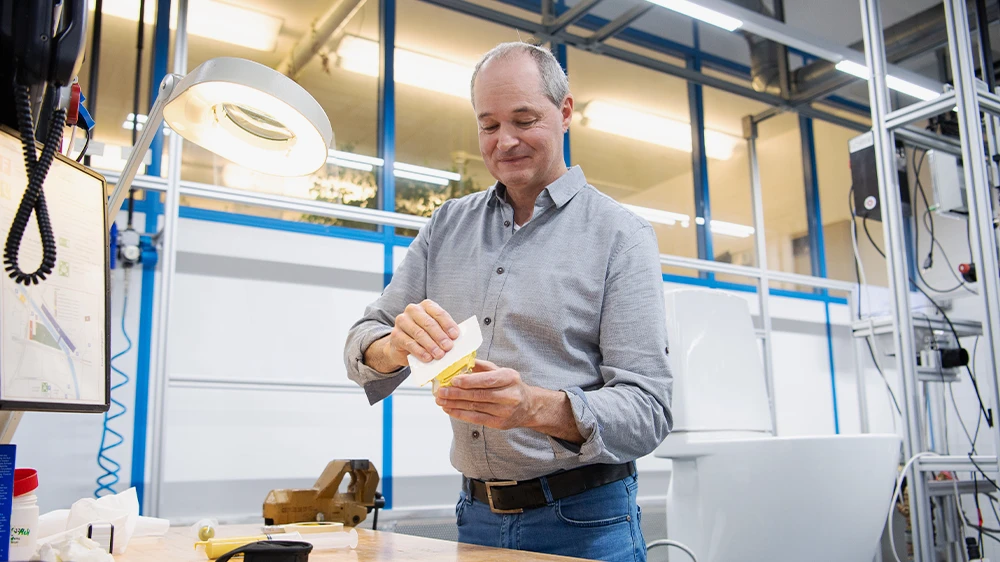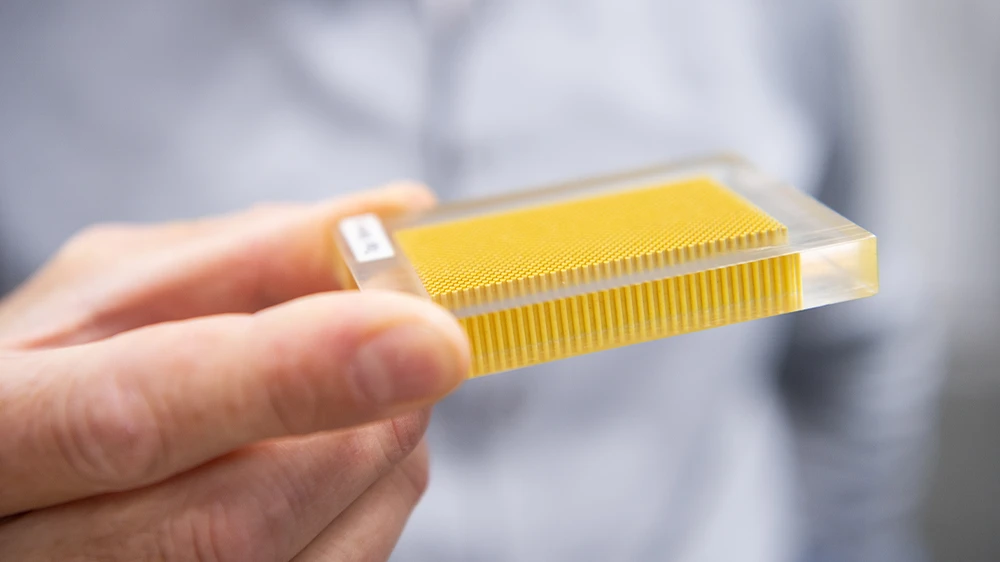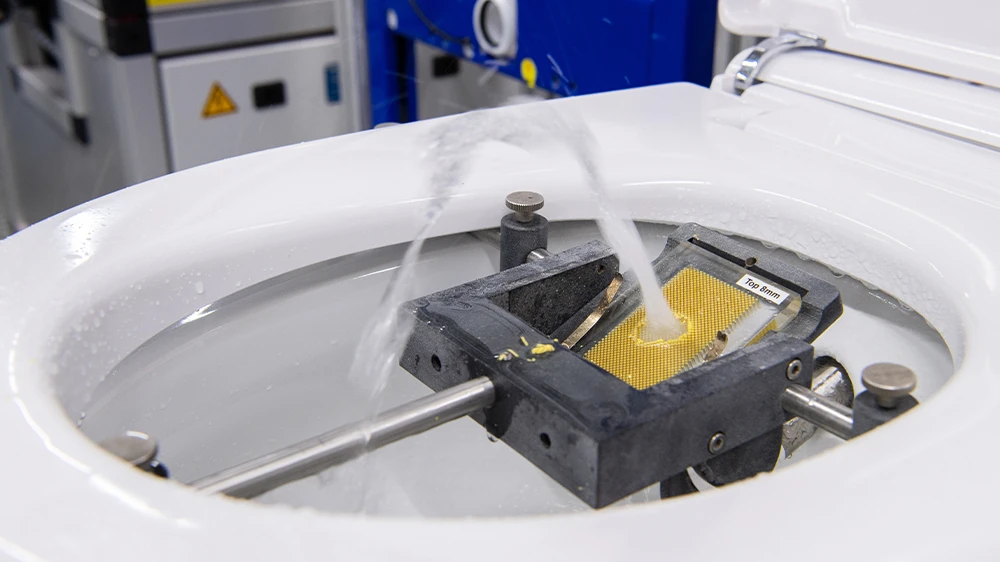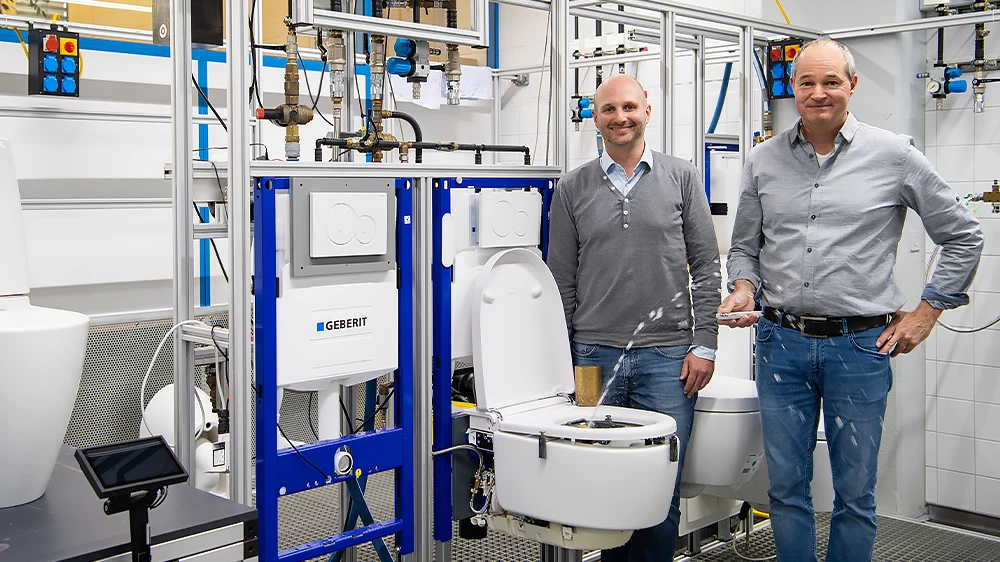Perforated plate seeks paste
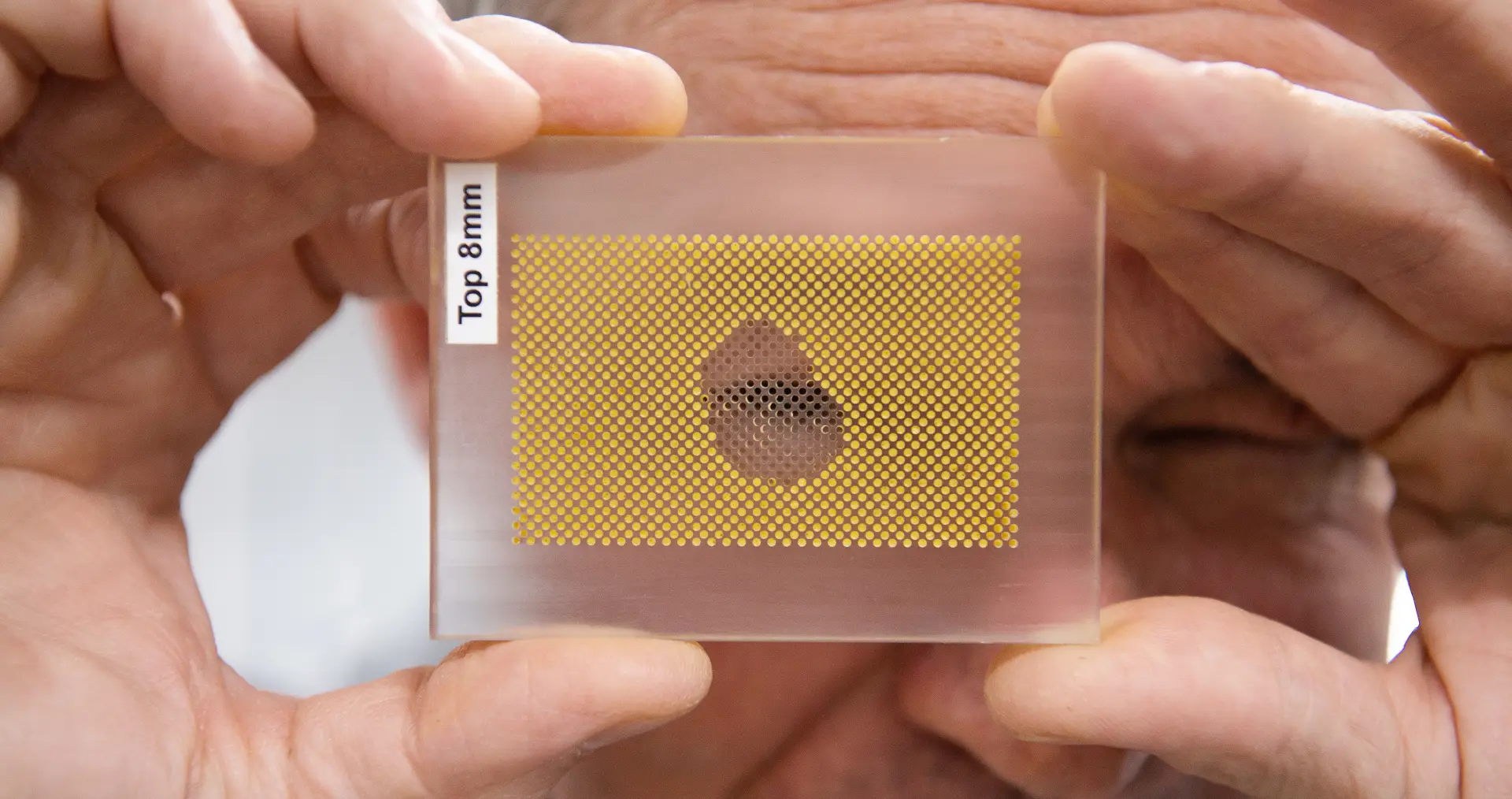
How effective is a shower spray? Finding a standard proved to be a Herculean task for the responsible standardisation organisation. Two Geberit employees then had some decisive flashes of inspiration.
This assignment was anything but ordinary – even for Markus Ott. The Project Manager at the Sanitary Laboratory at Geberit headquarters was faced with the task of developing a method for measuring the cleaning effect of the water spray in shower toilets. The challenge? It had to be reproducible and comparable. Not to mention acceptable to the majority. After all, the process would then be adopted by the standards committee of the International Electrotechnical Commission (IEC). In addition to Geberit, Japanese and Spanish sanitary manufacturers are also members of this committee.
The idea with the perforated plate
Markus Ott found the solution with the help of a perforated plate. The plates have a mesh of small holes that are filled with a paste which is then washed off using the spray arm. The measurement criterion is the number of flushed-out holes. The perforated plate was unanimously approved by the standards committee, but opinions were divided on the paste.
Miso or mustard
The Asian protagonists wanted to use a soy-based miso paste, while the Western faction insisted on testing using mustard. Markus Gantenbein, Head of the Materials Laboratory at Geberit, was tasked with finding an alternative.
Just like grandma used to make
Markus Gantenbein got to work – and soon found what he was looking for. A recipe of citric acid, calcium chloride, cellulose, water and pectin – a gelling agent that grandma used to make jam – seemed to him worthy of compromise. The paste withstood the scrutiny of all committee members. Miso and mustard were history.


